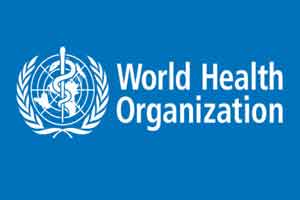- Home
- Medical news & Guidelines
- Anesthesiology
- Cardiology and CTVS
- Critical Care
- Dentistry
- Dermatology
- Diabetes and Endocrinology
- ENT
- Gastroenterology
- Medicine
- Nephrology
- Neurology
- Obstretics-Gynaecology
- Oncology
- Ophthalmology
- Orthopaedics
- Pediatrics-Neonatology
- Psychiatry
- Pulmonology
- Radiology
- Surgery
- Urology
- Laboratory Medicine
- Diet
- Nursing
- Paramedical
- Physiotherapy
- Health news
- Fact Check
- Bone Health Fact Check
- Brain Health Fact Check
- Cancer Related Fact Check
- Child Care Fact Check
- Dental and oral health fact check
- Diabetes and metabolic health fact check
- Diet and Nutrition Fact Check
- Eye and ENT Care Fact Check
- Fitness fact check
- Gut health fact check
- Heart health fact check
- Kidney health fact check
- Medical education fact check
- Men's health fact check
- Respiratory fact check
- Skin and hair care fact check
- Vaccine and Immunization fact check
- Women's health fact check
- AYUSH
- State News
- Andaman and Nicobar Islands
- Andhra Pradesh
- Arunachal Pradesh
- Assam
- Bihar
- Chandigarh
- Chattisgarh
- Dadra and Nagar Haveli
- Daman and Diu
- Delhi
- Goa
- Gujarat
- Haryana
- Himachal Pradesh
- Jammu & Kashmir
- Jharkhand
- Karnataka
- Kerala
- Ladakh
- Lakshadweep
- Madhya Pradesh
- Maharashtra
- Manipur
- Meghalaya
- Mizoram
- Nagaland
- Odisha
- Puducherry
- Punjab
- Rajasthan
- Sikkim
- Tamil Nadu
- Telangana
- Tripura
- Uttar Pradesh
- Uttrakhand
- West Bengal
- Medical Education
- Industry
WHO calls upon Centre to finetune strategies to help people

KOLKATA: The Centre should develop strategies to ensure that people are not badly affected while accessing health services, the World Health Organisation said.
"There is a need in India that government develops mechanism to ensure that people do not become poor while accessing health services," WHO Universal Health Coverage, National Professional Officer Dr Chandrakant Lahariya said.
Speaking at the recently-concluded 44th national conference of the Indian Association of Preventive and Social Medicine (IAPSM) held here Dr Lahariya said, "There is global evidence to support that increased government funding reduces out of pocket expenditure by people. The government funding for health sector in India has the potential to be enhanced."
According to the WHO official, the Centre should play a major role and increase investment in the public health services, also covering disease surveillance.
"The union government has to play a major role and increase investment in public health services (including disease surveillance)," he said.
A balanced supply-demand intervention would help the country progress towards an Universal Health Coverage (UHC), the WHO official said.
"A balance supply side, i.e. provision of health services by government demand side (Social Health Insurance) interventions, in realistic and contextual manner, can increase accessibility and affordability of health services by people and help India progress towards UHC," Dr Lahariya stated.
And to achieve the UHC by 2030, India requires a vision covering 10-15 year period like the way Thailand, Mexico and China have adopted, Dr Lahariya stressed.
"The process of advancing UHC in India needs to have a 10-15 year vision, so that it can be achieved in the country by 2030. Most of the countries such as Thailand, Mexico and China have followed similar path," the WHO official said.
Apart from the Centre, the states should take the initiative and top leaders including the Chief Ministers should lead from front in this drive, he added.
The official further commented that since health is a state subject in India, it was imperative that the process is led by the states and owned and guided by top political leadership such as Chief Ministers and Health Ministers from the very beginning.
"It has to be guided by experts throughout the process and there is sufficient expertise available in India, in most settings, to support the process," Dr Lahariya said.
Healthcare improvement is possible through multi-sectoral engagement (Nutrition, Sanitation and Social Justice), he observed.
Urging all stakeholders to come forward, he said "faculty members of departments of Preventive and Social medicines (PSM) can play a linkage between community members and other sectors."
The three-day IAPSM conference which concluded yesterday was attended by over 800 doctors working in departments of the PSM across the country.


